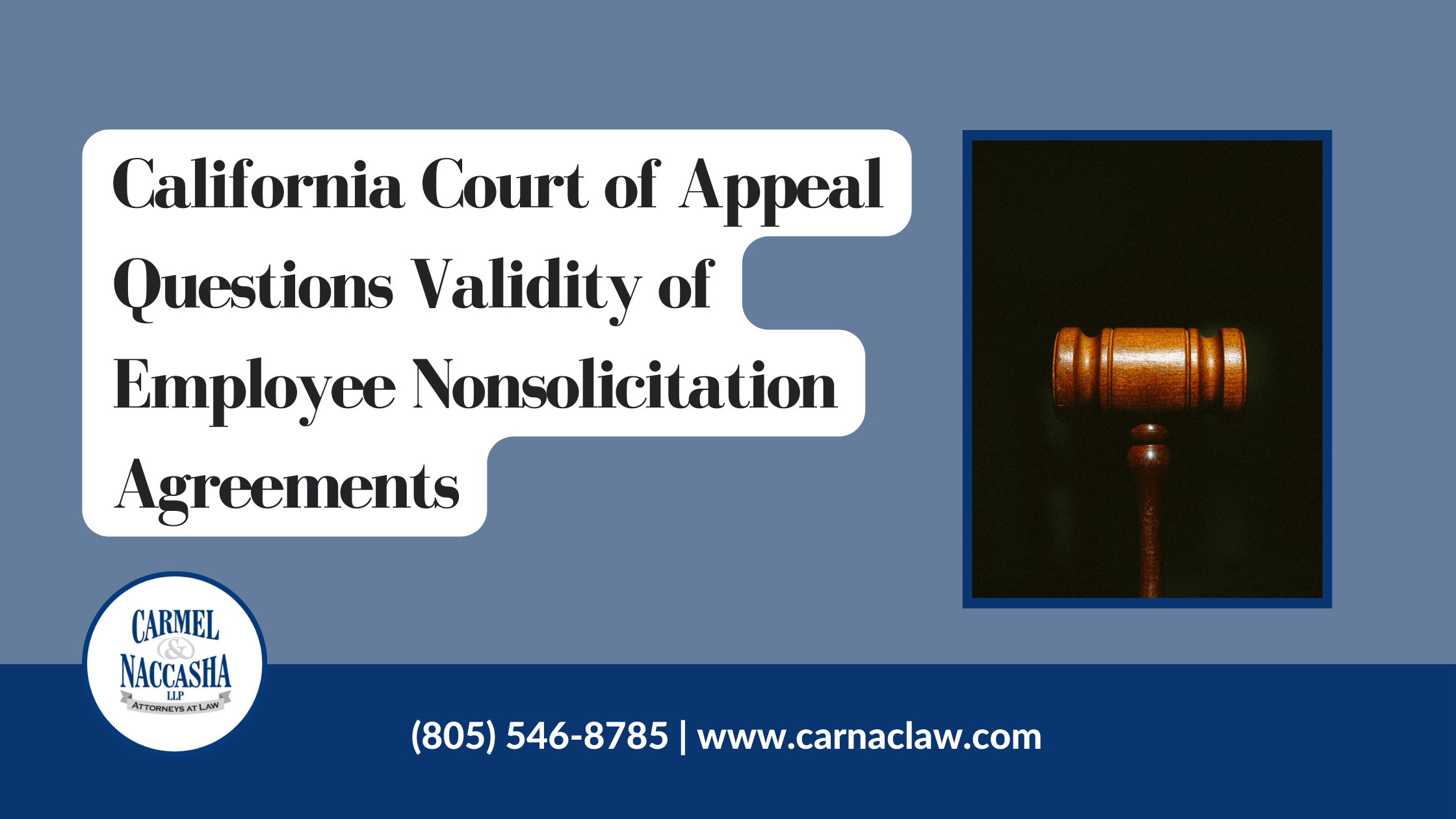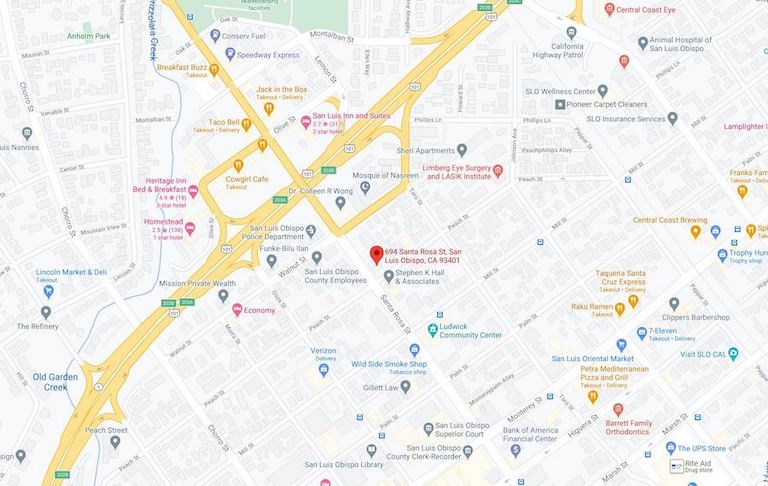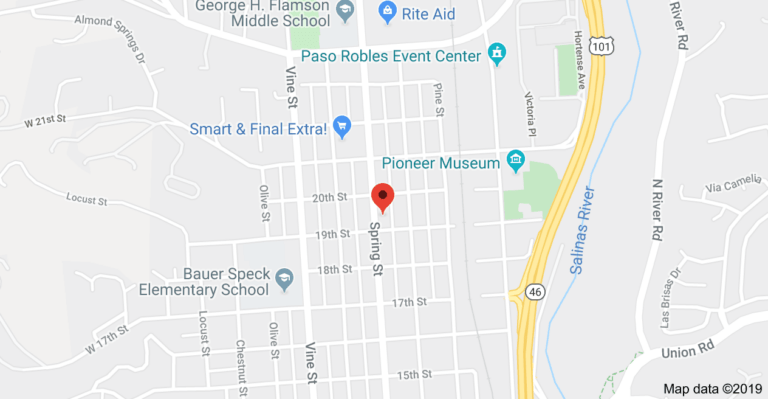November 2018
Introduction
Employee non-solicitation agreements are designed to prevent current and former employees of a business from soliciting the business’s customers or employees for the purposes of competing in the same type of business. Non-solicitation agreements are sometimes included as a condition of employment, often memorialized at the time hire by way of a confidentiality or non-disclosure agreement, or a proprietary information and invention agreement. Non-solicitation agreements may also be included at the end of the employment relationship, generally in a severance or termination agreement.
Notwithstanding wide adoption and an arguably very compelling interest of the business, the state of California takes a strong stance against employee non-solicitation agreements and places a very high premium employee mobility and the right to work, and are now potentially unenforceable by law if drafted so broadly that it prevents the employee from practicing in their chosen profession, essentially becoming an impermissible non-competition agreement. Business and Professions Code § 16600 (“BPC”) provides that “every contract by which anyone is restrained from engaging in a lawful profession, trade, or business of any kind is to that extent void.” The general prohibition on the validity and enforceability of nonsolicitation agreements has very few legislative exceptions. [1]
Despite prior case law allowing certain employee non-solicitation agreements in “narrow” and “reasonable” circumstances, a recent decision by the California Court of Appeal on November 1, 2018 calls into question the validity of any type of employee non-solicitation agreement under any circumstances. This significant legal development is a good reminder for employers to review their employee agreements regularly with counsel. We have drafted this summary of the case and state of the law, as well as some best practices, for employers when making a determination about whether to include or enforce employee non-solicitation agreements in the employment context.
The Case
In AMN Healthcare, Inc. v. Aya Healthcare Services, Inc., 2018 Cal. App. LEXIS 998 (Nov. 1, 2018) (“AMN Healthcare”), the California Court of Appeal, Fourth Appellate District affirmed the trial court’s ruling invalidating AMN’s non-solicitation provision in its Confidentiality and Non-Disclosure Agreements (“CNDA”). Significantly, this decision also prevented AMN from enforcing or attempting to enforce the employee non-solicitation provision in its CNDA with any of its former employees.
The case involved two competing businesses, AMN and Aya. Both companies are in the business of providing nurses to healthcare facilities on a temporary basis. Both companies rely on internal recruiters to locate and place these “traveling nurses” into healthcare facilities for thirteen-week assignments. As a condition of employment, AMN required its nurses to sign a CNDA prohibiting them, for at least one year after their employment, from soliciting any AMN employees to leave AMN. In this case, some recruiters left AMN to work for Aya, where they proceeded to recruit AMN nurses in contravention of the signed CNDA.
AMN sued Aya and the recruiters individually, for breach of the CNDA. AMN also argued that the identity of its employees was confidential information, and a trade secret, which Aya employees improperly used in its recruiting of AMN nurses. As to the breach of contract claim, Aya and the recruiters successfully argued that the employee non-solicitation provision in the CNDA was void under BPC § 16600. The Court, in reaching its decision, reasoned that because the recruiters were in the business of recruiting, any restriction on their ability to conduct those activities would be a restraint on their right to engage in their chosen profession, thus violating BPC § 16600. Following the California Supreme Courts rationale in Edwards v. Arthur Andersen LLP, (2008) 44 Cal.4th 937, the Court of Appeals went on to express doubt as to whether any employee non-solicitation agreement, in any context, would satisfy the requirements of BPC § 16600, despite some prior case law to the contrary.[2] With respect to the trade secret argument, the Court did not find it persuasive, as the identity of employees does not constitute a protectable trade secret.
What you need to know
- In nearly all circumstances, a restrictive covenant limiting an employee’s ability to engage in his or her chosen profession will not pass muster under BPC § 16600.
- A violation of BPC § 16600 may also violate California’s Unfair Practices Act by engaging in unlawful business practices.
- A business should not depend upon employee non-solicitation agreements as a contractual vehicle to prevent the disclosure of trade secrets.
- Employment agreements, non-disclosure and confidentiality agreements, severance agreements, employee handbooks and any other employment related contracts may be voidable if an unenforceable non-solicitation provision is contained within the document.
Costs of Non-Compliance
Apart from the organizational distraction, likely harm to corporate culture and potential negative impact on employee retention are concerns for a violation of BPC § 16600. Additionally, a violation would render the offending provision or agreement unenforceable. Furthermore, a clause that is void under BPC § 16600 may also violate California’s Unfair Practices Act (BPC § 17200 et seq.), providing for both monetary damages as well as injunctive relief. Most notably in AMN Healthcare, the Court awarded Aya $190,000.00 in attorney’s fees and costs because, as the court concluded, “the instant action involved an important issue affecting the public interest.”[3]
Best Practices
- Employers should not assume that post-employment restrictions on employee solicitation are lawful.
- Employers should undertake a careful review of all employment agreements, employee handbooks, non-disclosure and confidentiality agreements, and other employment documents, and modify them based on the ruling in AMN Healthcare.
- If seeking to enforce a non-solicitation agreement or provision, seek legal advice from experienced counsel before proceeding with any enforcement activity.
Contact Legal Professional
The information provided herein does not, and is not intended to, constitute legal advice; instead all information, content, and materials are for general informational purposes only.
The attorneys at Carmel & Naccasha have extensive experience advising our business clients on matters involving compliance with California’s rapidly changing employment laws. If you have any questions or need assistance in ensuring your business is protected, please contact Carmel & Naccasha and for more details, read our full disclaimer.
[1] See Business and Professions Code §§ 16600 et seq..
[2] See Loral Corp. v. Moyes (1985) 174 Cal. App. 3d 268 (upholding the validity of a contractual clause restricting a former executive from “raiding” the plaintiff’s employees).
[3] AMN Healthcare, at 44.



